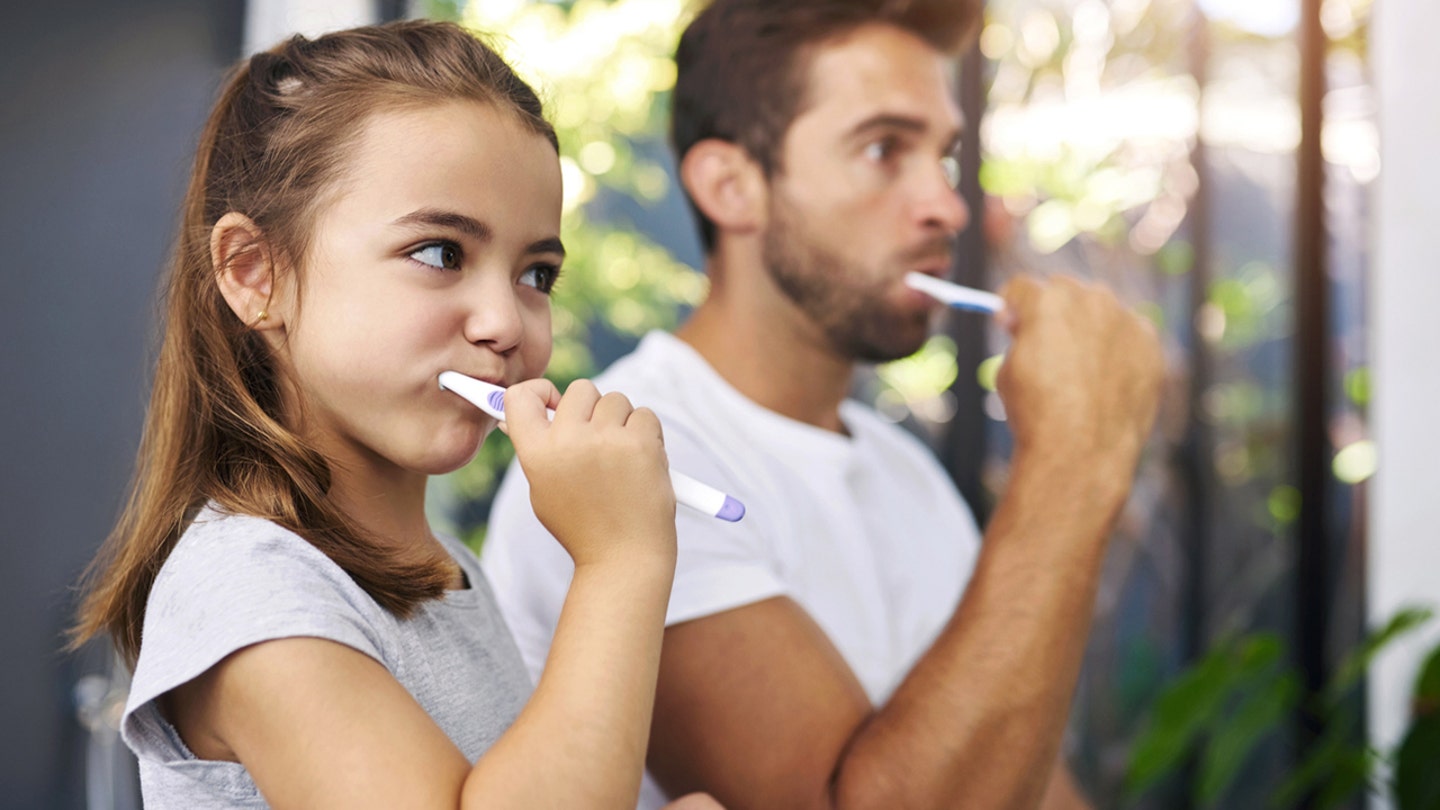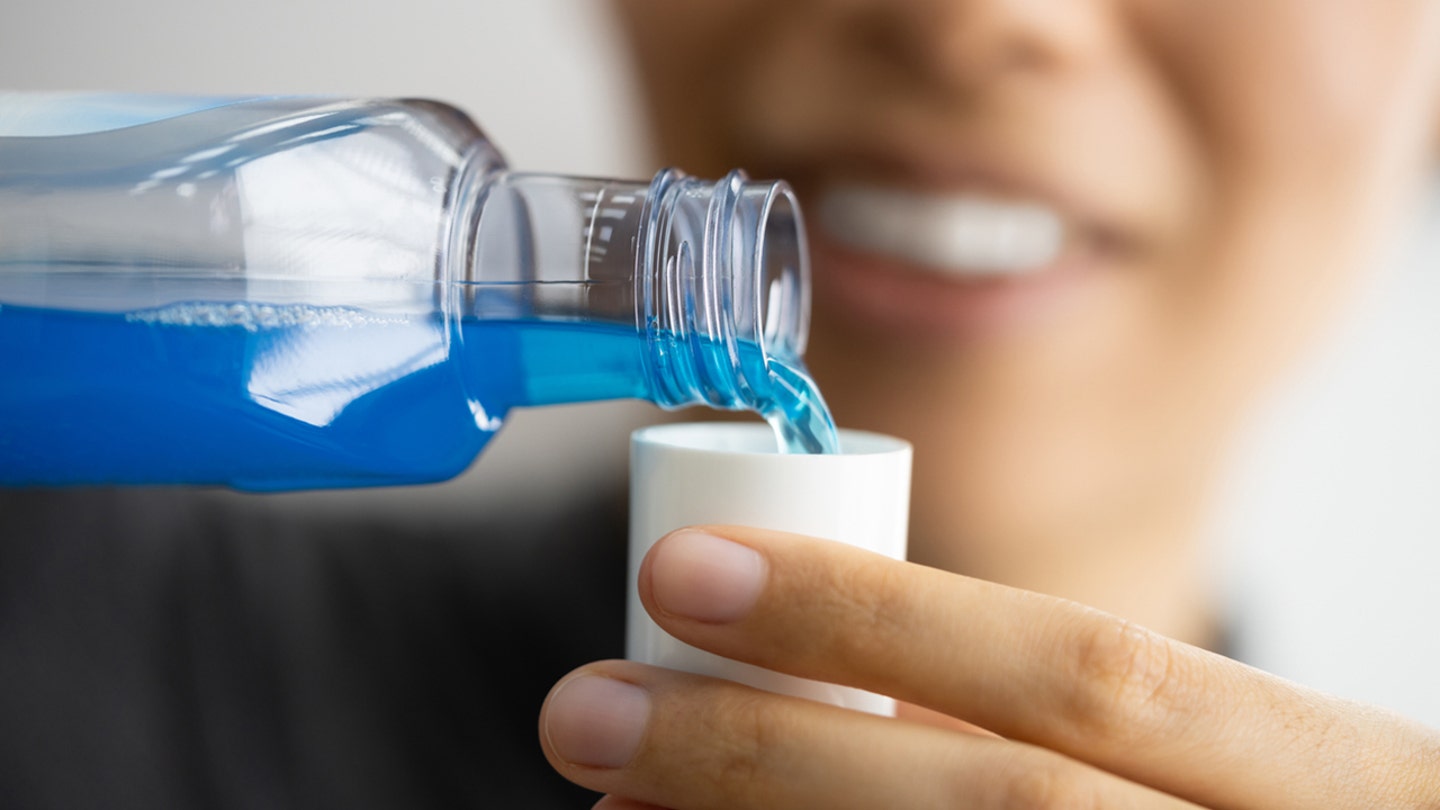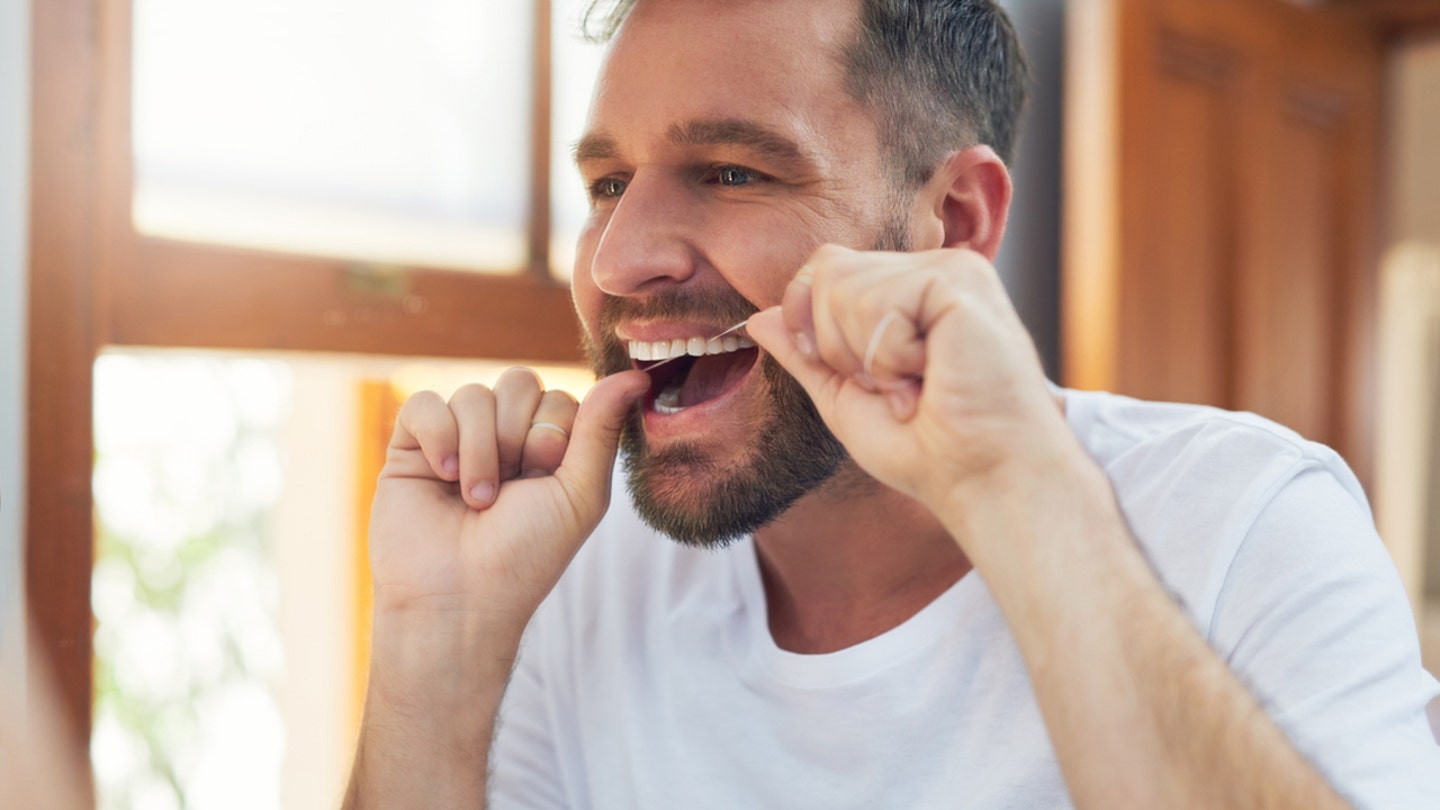Your dentist may remind you to brush, floss and mouthwash – but what is the “right” order to do it?
While all steps of oral hygiene can benefit dental health, Dr. Mike Wei, DDS, of New York City, shared with Fox News Digital that he’d recommend the below order.
1. Floss
2. Brush
3. Mouthwash
‘I’M A DENTIST – HERE’S WHY YOU SHOULD NEVER KEEP YOUR TOOTHBRUSH NEAR THE TOILET’
Starting with floss helps to remove food debris and plaque between the teeth and along the gumline, which a toothbrush “may not reach effectively,” according to Wei.
Dr. Ellie Phillips (not pictured) recommends using xylitol gum and mints to promote healthy salivary flow. (iStock)
“By flossing first, you can dislodge particles and bacteria from these tight spaces, making it easier for the toothbrush and mouthwash to clean the remaining surfaces of your teeth,” he said.
Next, brushing with a fluoride toothpaste can help remove plaque, bacteria and food particles from the surface of the teeth, the dentist advised.
TIKTOK VIDEO FROM LONDON DENTIST GOES VIRAL FOR REVEALING 3 SURPRISING TIMES YOU SHOULD NOT BRUSH YOUR TEETH
“By brushing after flossing, you are able to remove any particles that were loosened during flossing and ensure that all visible surfaces of your teeth are thoroughly cleaned,” Wei said.
Following up with an antimicrobial mouthwash can help further kill bacteria and reduce plaque buildup.

A dentist recommended using toothpaste with silica for proper exfoliation of the teeth. (iStock)
Mouthwashing at the end can also help freshen the breath and reach areas that brushing or flossing may have missed, Wei noted.
“Overall, following this order of flossing, brushing and using mouthwash can help to ensure a comprehensive cleaning of your teeth and gums, leading to better oral hygiene and a reduced risk of dental issues, such as cavities and gum disease,” he said.
WOMEN EXPERIENCE MORE DENTAL HEALTH ISSUES THAN MEN, EXPERTS SAY
This recommended sequence is common practice among dental professionals to achieve optimal oral health, including reduced risk of cavities and gum disease, Wei added.
Dr. Ellie Phillips, DDS, an oral health educator based in Austin, Texas, took it a step further, noting that a mouth rinse can act as a “cleanser” for the teeth before brushing.

Excessive use of mouthwash containing alcohol may lead to dry mouth and irritation, according to one expert. (iStock)
Rinsing with salt water or alternative mouthwashes like chlorine dioxide helps to remove any acidity from food and drink particles and prevent them from being brushed into the teeth, she told Fox News Digital.
For more Health articles, visit www.foxnews.com/health.
After brushing with toothpaste and “massaging” the gums with a toothbrush to stimulate circulation, then it’s time to floss, Phillips said.
Flossing after brushing “will get toothpaste between your teeth,” she cautioned.
But the expert also warned that “a lot of floss contains PFAS chemicals,” which people should avoid pushing into their gums.
CLICK HERE TO SIGN UP FOR OUR HEALTH NEWSLETTER
After flossing, Phillips recommends rinsing with a traditional mouthwash, which studies have shown can be “five times more effective than flossing” just by swishing it through the teeth for a few seconds.

“A lot of floss contains PFAS chemical,” which people should avoid “pushing into their gums,” one dentist advised. (iStock)
Rinsing with water, especially with natural fluoride, at the end of an oral care routine can help absorb minerals into the teeth, according to Phillips, author of the upcoming second edition of her book “Kiss Your Dentist Goodbye.”
While there are “minimal risks” to basic oral care, Wei warned that excessive use of mouthwash containing alcohol could lead to dry mouth and irritation.
CLICK HERE TO GET THE FOX NEWS APP
“It’s important to choose products recommended by dental professionals and follow instructions for proper use,” he said.
“Remember to consult with your dentist for personalized recommendations based on your oral health needs.”
